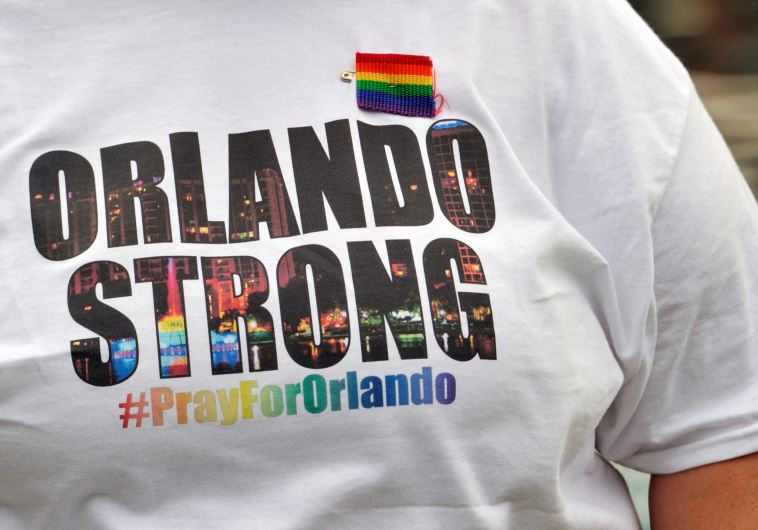Islam’s challenge
It is so crucial that moderate, peaceful Muslims speak out against the violence being carried out in the name of Islam. And many are.
 A resident wears an "Orlando Strong" T-shirt during a vigil at Lake Eola Park in Orlando.(photo credit: STEVE NESIUS/REUTERS)
A resident wears an "Orlando Strong" T-shirt during a vigil at Lake Eola Park in Orlando.(photo credit: STEVE NESIUS/REUTERS)